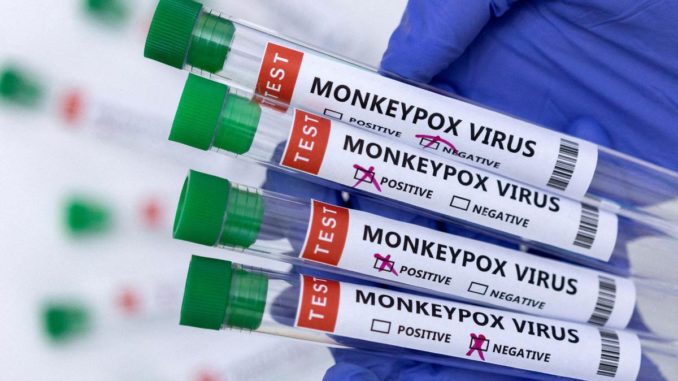
New Delhi: Monkeypox has entered India with the country reporting two cases of the virus so far. A 31-year-old man from Kannur in Kerala who returned from Dubai tested positive for monkeypox on Monday making it the second confirmed case of the disease in India. Before that, the first confirmed case of monkeypox in the country – a 35-year-old who returned from UAE – was detected in Kerala’s Kollam district on Thursday. Even as the country – like the rest of the world – continues to battle the Covid-19 pandemic, the second case especially sparked fear among people about a possible outbreak in India.
Monkeypox disease: Guidelines issued by the Ministry
The Ministry of Health has issued ‘Guidelines for Management of Monkeypox disease’. In the ‘Guidelines on Management of Monkeypox Disease’ issued to states and UTs the Centre stated that human-to-human transmission occurs primarily through large respiratory droplets generally requiring prolonged close contact. It can also be transmitted through direct contact with body fluids or lesion material, and indirect contact with lesion material, such as through contaminated clothing or linens of an infected person. Animal-to-human transmission may occur by bite or scratch of infected animals like small mammals including rodents (rats, squirrels) and non-human primates (monkeys, apes) or through bush meat preparation.
The incubation period (interval from infection to onset of symptoms) of monkeypox is usually from 6 to 13 days but can range from 5 to 21 days, the document stated. The case fatality ratio of monkeypox has historically ranged from 0 to 11 per cent in the general population and has been higher among young children. In recent times, the case fatality ratio has been around 3-6 per cent, the document stated
Monkeypox across the world
The monkeypox virus has been spreading globally with several countries, where monkeypox wasn’t traditionally found – in Europe, the Americas, Africa, the Western Pacific, and countries of the Eastern Mediterranean – reporting outbreaks. Places like Nigeria, the Democratic Republic of the Congo, Central African Republic — where monkeypox was earlier found, also reported a greater incidence of infection in 2022 than usual.
The US Centers for Disease Control and Prevention (CDC) has tracked at least 1,814 probable or confirmed cases, while more than 6,000 cases of monkeypox and three deaths have been reported across 60 countries since the beginning of the year, as per the World Health Organization (WHO). In Israel, monkeypox cases totalled 101, with 35 new cases detected over the past week, the county’s Health Ministry said in a statement. Across the world, around 11,500 cases of the virus have been reported with 1,856 cases in the UK (as on July 18 as reported by Reuters), while Spain has nearly 2500 cases.
What is Monkeypox and how does it spread
Monkeypox is common in wild animals like rodents and primates, including humans, can also get infected with the virus.
Its symptoms include skin rashes, fever, headache, muscle ache, backache, swollen lymph nodes, chills and exhaustion. The rash eventually forms a scab, which later will fall off, indicating that the person is no longer infectious.
The lesions typically concentrate on the arms and legs, but in the latest outbreak, they’re showing up more frequently on the genital and perianal area, which has raised some concerns that monkeypox lesions may be confused with sexually transmitted disease. The virus spreads through close contact – including direct physical contact with lesions as well as “respiratory secretions” shared through face-to-face interaction. Touching objects that have been contaminated by monkeypox lesions or fluids may also risk the spread.
Is a Monkeypox outbreak in India possible?
The WHO has said that Monkeypox is usually a self-limited disease with symptoms lasting from 2 to 4 weeks. Severe cases can occur. In recent times, the case fatality ratio has been around 3–6%. WHO has already denied the possibility of Covid-19 like pandemic for monkeypox. With proper isolation and care, experts are sure it can be contained.
Bureau Report
Leave a Reply